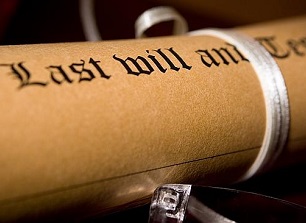Roles and duties of an executor
You should give careful consideration to who you trust to carry out your wishes in accordance with the terms of your last will. The person, or persons, charged with this responsibility are called your executors. You can appoint one or more executors, but some thought should be given to whether they are independent, capable people who will be able to act as your legal personal representative during the difficult times following your death.
An executor is responsible to arrange the disposal of your body, to attend to funeral arrangements, call in your assets, pay your debts and distribute your interests to the beneficiaries you have identified in your will.
Expensive and time consuming litigation can result from an executor who does not carry out their responsibilities correctly. Sometimes, the executor simply makes a mistake. The majority of complaints against executors, however, concern delay and the executor preferring their own interests to those of the beneficiaries.
We have prepared some tips for you to assist you consider who you should appoint as your executor:
- Avoid appointing executors older or the same age as you as they may not survive you or be in a position to act as your executor due to their age.
- Appoint alternate executors in case your first choice is unwilling or unable to act.
- Don’t appoint too many executors as it can become difficult to coordinate and organise paperwork.
- Choose executors that will be able to work together effectively to carry out your wishes.
- Avoid choosing an executor that you think will cause disagreements or disputes.
- Avoid putting your executors into conflict by the terms of your will. For example, it is ill-advised to give your executor a right of residence to live in a property where the executor must make decisions about whether they are complying with any conditions.
- Your executor is able to obtain legal and financial advice regarding the administration of your estate, but it is wise to consider a person’s capacity to fulfill the role, including their natural ability, emotional strength and integrity.
- Executors in different locations or states can be appointed, but it can create extra delay and cost. Executors living overseas can also be appointed, although this can cause lots of unexpected problems and it is best avoided.
- Many people appoint a friend or family member as their executor. For various reasons, some choose to appoint an independent organisation like the NSW Trustee or a private trustee company. These options need to be considered carefully, however, as they will expose your estate to claims for commission and additional professional costs.
If you would like more information about choosing the executor of your Will or if you have a general Wills & Estates enquiry, please contact our lawyers today on 13 43 63.
